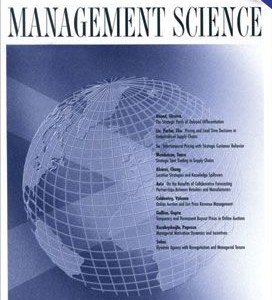
Garofalo, O. and Rott, C. (2018). Shifting blame? Experimental evidence of delegating communication Management Science, 64(8):3911--3925.
-
Affiliated author
-
Publication year2018
-
JournalManagement Science
Decision makers frequently have a spokesperson communicate their decisions. In this paper, we address two questions. First, does it matter who communicates an unfair decision? Second, does it matter how the unfair decision is communicated? We conduct a modified dictator game experiment in which either the decision maker or a spokesperson communicates the decided allocation to recipients, who then determine whether to punish either of them. We find that receivers punish both the decision maker and the spokesperson more often, and more heavily, for unfair allocations communicated by the spokesperson if there is room for shifting blame. The increased punishment results from the messenger{\textquoteright}s style of delivery: spokespersons are more likely than decision makers to express emotional regret instead of rational need. Receivers seem to punish the former style of communication because they view it as an attempt to shift blame. Our results establish more generally that the design of communication schemes shapes relationships among organizational members.